Reaction Inspiration
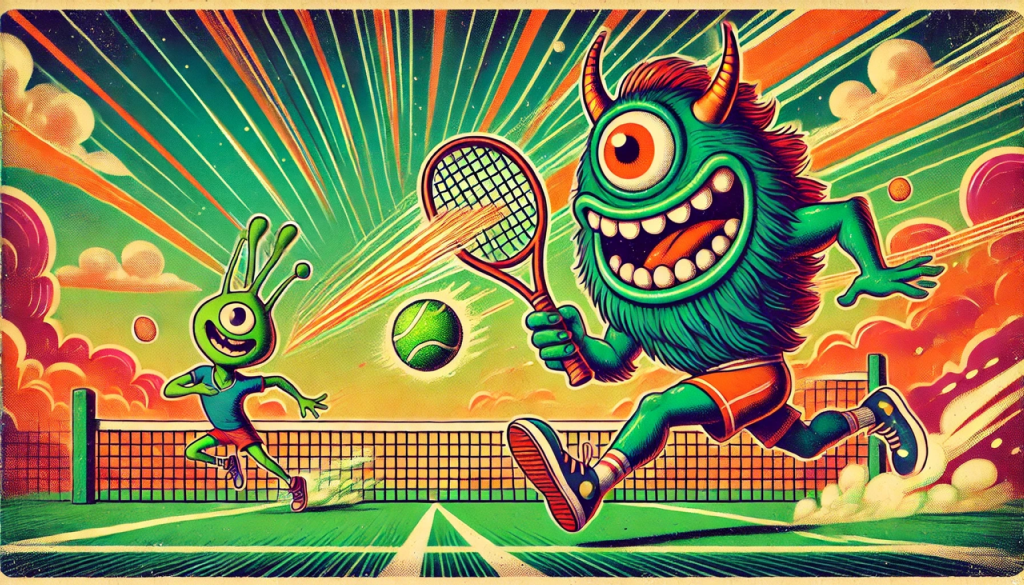
In Momema, once you've got a handle on beating levels, the main challenge comes in the form of beating your best time, and to do that, you'll need to up your reaction speed. Reaction speed has always been important in video games, even since the early days of arcade games like Pong and Breakout. Here are some of the more interesting ways different games handle reaction speed, and how Momema mixes up these different approaches.
Dragon's Lair, or How I Lost a Bunch of Time and Money to a Game that Isn't Even that Fun
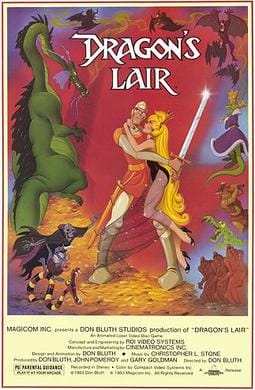
William Wilson, the developer of Momema, grew up playing some truly difficult arcade games. He talks a lot about how difficult and quick paced some of his favorite games were, like Donkey Kong, as well as some of his less favorite games, like Dragon's Lair (which he says ate all of his quarters). Dragon's Lair in particular demanded constant interaction, and would punish you heavily for messing up slightly. The main thing Dragon's Lair tested was reaction time, requiring split second button inputs at unpredictable moments, but it would also test intuition, as it wasn't always obvious which button was needed to pass a challenge.
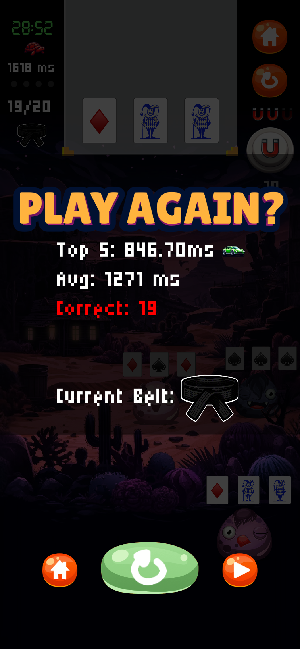
Though he may profess hatred for the game, William Wilson seems to, at least subconsciously, have taken some cues from it. Like Dragon's Lair, you live and die by your reaction speed in Momema. Also like Dragon's Lair, quick understanding of what choices need to be made is necessary to pass levels. However, there are substantial differences as well. While both games use a life system, Momema does not send you back to the beginning of the level every time you make a mistake or hesitate too long. Further, while both Dragon's Lair and Momema require you to quickly ascertain what action you need to take before reacting to the prompt, in Momema there is always a definitive indicator as to what that action is. Finally, and significantly, while you can buy extra magnets in Momema, you don't need to spend money to win (let alone pay a quarter every time you want to play for fifteen seconds which adjusted for inflation is just stupid).
Cookie Clicker: Hidden Gems
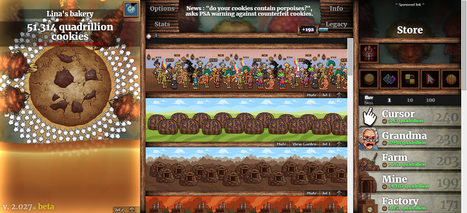
In the game Cookie Clicker, you click a big cookie to make little cookies. And, for the first thirty seconds or so, that's it. Then you buy a cursor that automatically clicks the cookie for you. Then grandmas who automatically bake cookies. Then cookie farms that grow cookies. As you continue the game, you'll mostly be buying crazier and crazier buildings to make cookies automatically faster and faster, and buying upgrades to make your buildings better. It's an idle game, and for the most part you let it run in the background, only occasionally checking in on it to buy something with your well earned cookies. When you've managed to get past this layer of the game, however, something major appears: Golden Cookies.
Since you mainly play Cookie Clicker in a secondary screen, you might not notice the Golden Cookies when they pop up, and that's bad. Golden Cookies provide powerful effects that can make the difference between doing okay and doing amazing. Golden Cookies only last for a short time, and though they shake around a little to let you know they're there, they disappear quickly. For this reason, your reaction abilities are tested by the distractions in the game (various upgrades and minigames) and by other things in your browser.
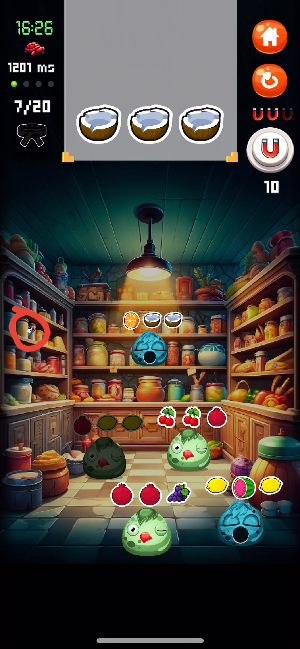
Momema pulls a similar trick with its level bonuses. So many things are testing your reaction speed at all times in Momema, pulling your attention towards this monster, then that monster, the slate, another monster, the magnet button, a bonus, another monster. In the background, there are hidden bonuses which move a little bit, and which let you click on them to score more points than a regular match. However, because they don't really call much attention to themselves, and often disappear quickly, they test your reaction speed and your ability to split your attention in a fundamentally different way than the rest of the game.
From Fret Tester to Today's Tests
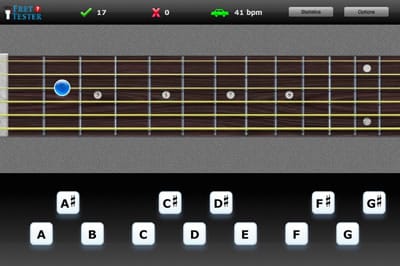
A final way that a game can test your reaction speed is not through a bonus, or a requirement, but a challenge. In most of William Wilson's early games, he included a feature that displayed your reaction speed using four little logos: a red turtle, a yellow rabbit, a green car, and a blue rocket. The first game to use these features was Fret Tester, a flash game that tested the abilities of guitar players to guess different notes on a guitar.
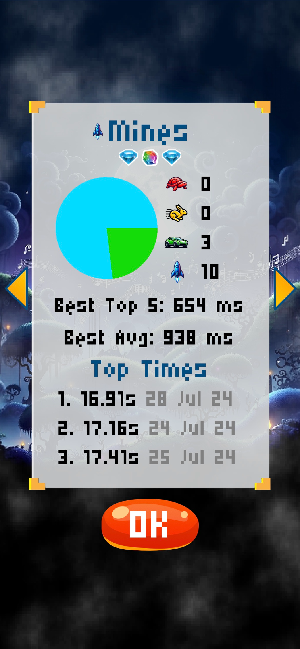
Momema uses the same system, but with a much more streamlined focus on record-chasing. The difficult to obtain blue rocket is now the main goal, with a rocket badge displayed next to the level if you've ever managed to obtain it. Additionally, there is a statistics page that uses this system to tell you how well you've done on each level historically.
On to Momema!
While this article discussed a lot of ways that Momema tests reaction speed, there are other ways too. Chasing after high scores, messing with the matching symbols, even changing up the speed of the game's timed prompts. We hope you find out how Momema can test and improve your reaction skills using the demo on this website!


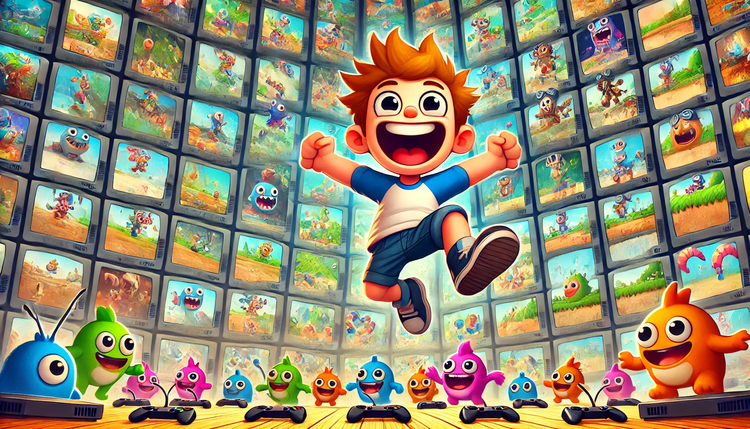
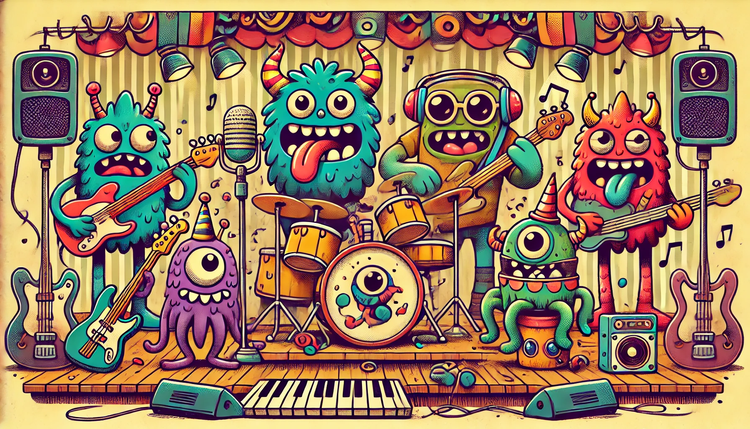
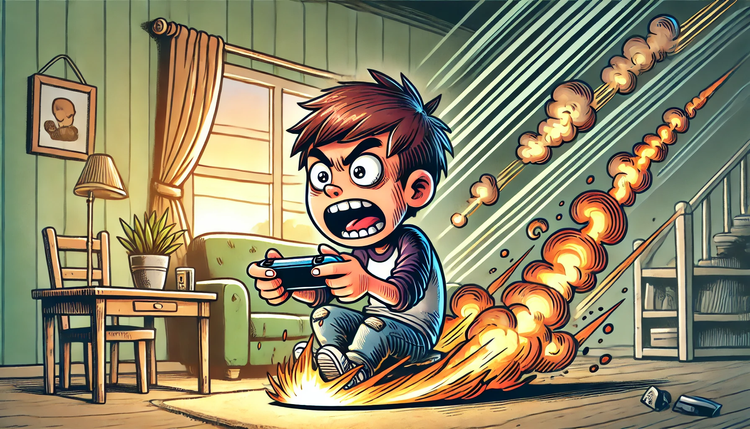
Member discussion